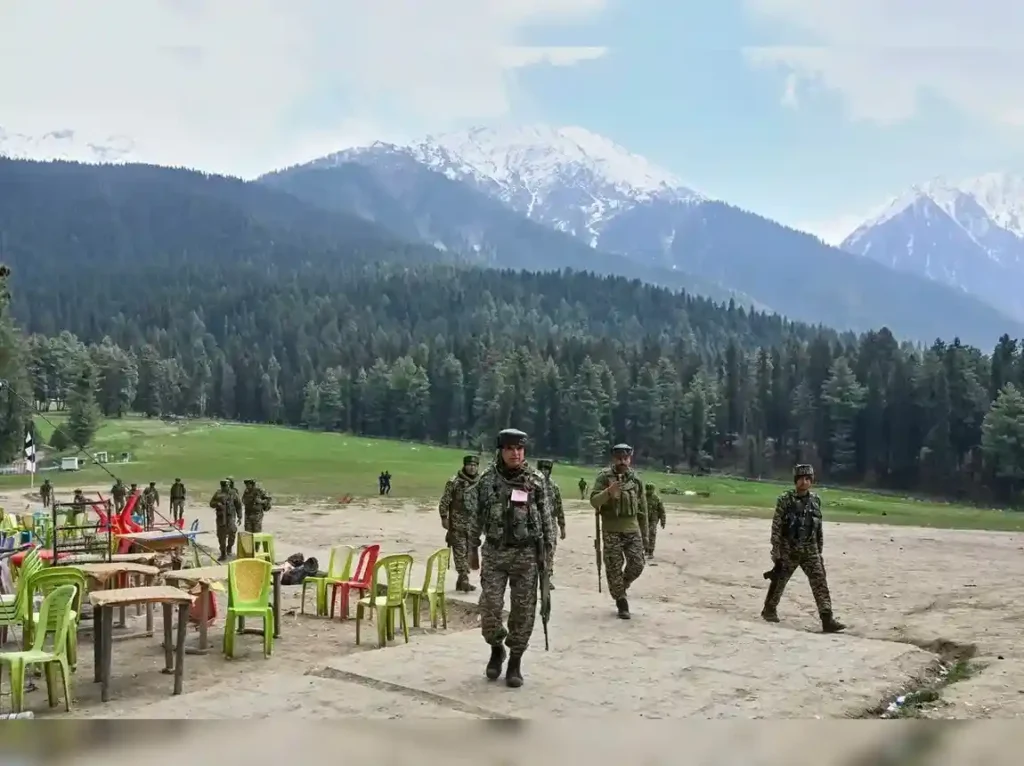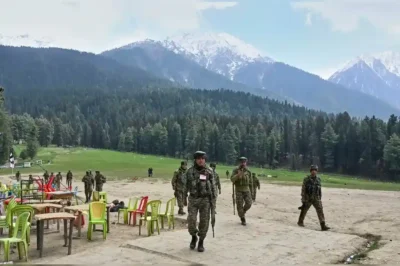
A Deadly Assault in the Valley
India was rocked on April 22, 2025, by one of the deadliest terror attacks in recent years, as militants opened fire on a group of tourists in the picturesque Baisaran Valley of Pahalgam, Jammu and Kashmir. The sudden and brutal ambush claimed the lives of 26 individuals, including 20 tourists, and left dozens injured. Investigations quickly pointed to The Resistance Front (TRF), a shadow group believed to be backed by the Pakistan-based Lashkar-e-Taiba (LeT), marking a chilling return of large-scale violence to a region striving for normalcy.
Top Brass Mobilizes Amid Soaring Tensions
In a swift response to the escalating situation, India’s military leadership has swung into action. On May 4, 2025, Air Chief Marshal A.P. Singh met with Prime Minister Narendra Modi to brief him on India’s preparedness and the potential strategic pathways to counter future threats. This high-level meeting followed a similar debrief by Navy Chief Admiral Dinesh K. Tripathi, who outlined maritime security developments and the state of India’s naval readiness in the Arabian Sea, an area of increasing sensitivity in light of regional provocations.
The meetings signal the government’s determination to project both deterrence and preparedness. Sources suggest the discussions included air surveillance updates, deployment strategies along the western border, and coordinated intelligence operations across the services.
Indus Treaty Suspended as India Turns Up Pressure
Beyond military posturing, India’s response has been swift and multi-layered on the diplomatic front. In a decisive move just a day after the attack, the Cabinet Committee on Security suspended the Indus Waters Treaty, a landmark 1960 agreement on river water sharing between India and Pakistan. By halting water flows from key dams like Baglihar and Uri, India sent a stern message: cross-border terrorism will now carry geopolitical consequences.
Foreign Secretary Vikram Misri made it clear: “There will be no business as usual with Pakistan until it ceases support for terror proxies.” Alongside the treaty suspension, India expelled Pakistani diplomats, recalled its envoy from Islamabad, and shuttered the Wagah-Attari border, cutting off all trade and travel links.
Global Support for India, Cautious Eyes on Region
The international community has responded with solidarity. U.S. President Donald Trump offered unflinching support, stating, “The United States stands shoulder to shoulder with India against terrorism.” Russian President Vladimir Putin echoed the sentiment, calling the attack “a brutal crime” and vowing international cooperation to bring the perpetrators to justice.
Meanwhile, the United Nations and the European Union have urged restraint from both sides, fearing the situation may spiral into open conflict.
Pakistan’s Countermoves Raise Concerns
Amid mounting pressure, Pakistan has also taken bold steps. On May 3, 2025, it test-fired the Abdali Weapon System, a short-range ballistic missile, in a show of military readiness. Although officially described as a “routine drill,” the timing is widely interpreted as a strategic warning.
Islamabad has also launched a diplomatic offensive, reaching out to allies including China, Saudi Arabia, and the UK. Foreign Minister Ishaq Dar framed the escalation as a “misunderstanding driven by domestic Indian politics,” appealing for global mediation, a move India has firmly resisted.
Life in Kashmir: Fear and Crackdowns
On the ground in Kashmir, the aftermath of the attack has triggered sweeping security operations. Over 2,000 individuals have been detained under anti-terrorism laws in what authorities describe as a preventive measure. However, rights groups and local residents report mass arrests and home demolitions, raising concerns about civil liberties and the rule of law.
The return of military checkpoints, surveillance drones, and cordon-and-search operations has cast a pall over daily life in the Valley, renewing fears of prolonged unrest.
The Road Ahead: Diplomatic Balancing or Military Showdown?
As India weighs its options, analysts believe the government is walking a tightrope, determined to assert national resolve, yet cautious of igniting a full-scale conflict. The coming weeks will be crucial in determining whether backchannel diplomacy can diffuse tensions or if the region is heading toward another standoff.
With security agencies on high alert, and public sentiment in India demanding accountability, the government faces one of its most delicate foreign policy challenges in recent years. For now, the message from New Delhi is unambiguous: terrorism will not go unanswered.








































Leave a Reply